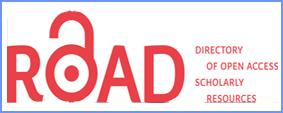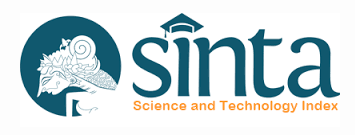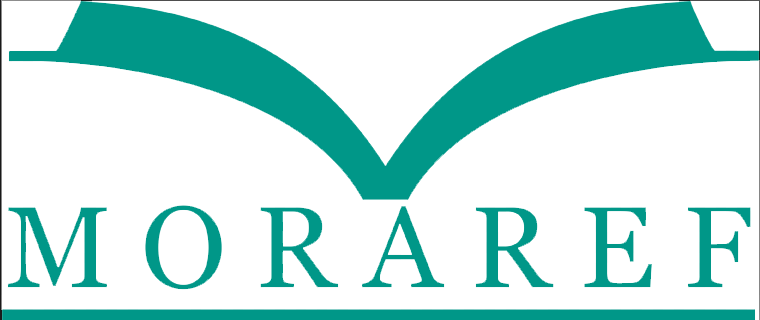Pengaruh Tekanan Stakeholders dan Tanggung Jawab Sosial terhadap Penerapan Akuntansi Lingkungan di Kawasan Industri Makassar
Abstrak
This study aims to provide empirical evidence of the influence of the pressure of stakeholders and social responsibility to the implementation of environmental accounting, and the most dominant influence between pressure stakeholders with social responsibilities towards the implementation of environmental accounting. The population of study was company in Makassar Industrial Area (KIMA). Find were the method using purposive sampling and obtained by respondents as many as 70 managers from 11 companies sampled. Hypothesis testing using multiple regression models with independent variables pressure of stakeholders that includes government regulation, public pressure, the pressure of environmental organizations, and corporate social responsibility, and the dependent variable is the implementation of environmental accounting. The results showed that the pressure of stakeholders in the form of government regulation and corporate social responsibility significantly influence the implementation of environmental accounting, while the pressure of stakeholders in the form of public pressure and the pressure of environmental organizations did not significantly influence the implementation of environmental accounting.Referensi
Abdullah,Wahyuddin. 2013. Opini; CSR di Balik Kontrak Sosial. Harian Pagi Fajar, Rabu 13 April.
Anonim. 2005. Persepsi Lulusan Jurusan Pendidikan Akuntansi terhadap Kesesuaian Kurikulum Jurusan Pendidikan Akuntansi dengan Kebutuhan Dunia Kerja. Fakultas Ilmu Sosial dan Ekonomi Universitas Negeri Yogyakarta. http://staff.uny.ac.id, diakses tanggal 6 Maret 2013.
Epstein, M. J. 1996. Improving Environmental Management Witt Full Environmental Cost Accounting, Environmental Quality Management Autumn: 11-22.
Febrina dan IGN Agung Suaryana. 2011. Faktor-faktor yang Mempengaruhi Kebijakan Pengungkapan Tanggung jawab Sosial dan Lingkungan pada Perusahaan Manufaktur di Bursa Efek Indonesia. Simposium Nasional Akuntansi XIV, Aceh.
Fuad, Muhammad. 2006. Uji Empiris Faktor-faktor yang Mempengaruhi Disclosure Perusahaan Manufaktur di BEJ. Akuntabilitas, 6 (1), September: 80-87.
Gujarati, Damodar N. 2003. Basic Econometrics. 4th Edition. McGraw-Hill, New York.
Ikbal, Muhammad. 2012. Hubungan Karakter Perusahaan dan Profitabilitas dengan Praktik Pengungkapan Sosial dan Lingkungan; (Suatu Telaah Empiris dan Teoritis), Jurnal Kinerja, Volume 9 (2): 28-32.
Ikhsan, Arfan. 2008. Akuntansi Lingkungan & Pengungkapannya. Graha Ilmu, Yogyakarta.
Lindrianasari. 2007. Hubungan Antara Kinerja Lingkungan dan Kualitas Pengungkapan Lingkungan dengan Kinerja Ekonomi Perusahaan di Indonesia. JAAI, Volume 11 (2), Desember: 162-169.
___________ 2003. Niat Perusahaan untuk Environmental Sustainability: FE UNILA, Lampung.ahttp://radarlampung.co.id/web/index.php?option=com_content&task=view&id=13180&Itemid=31, diakses tanggal 6 Maret.
Meyer, J. and B. Rowan. 1997. Institusionalized Organizations Formal Structure as Myth and Ceremony. The American Journal of Sociology, 83: 340-363
O’Donovan. 2002. Environmental Disclosure in the Annual Reports: Extending the Applicability and Predictive Power of Legitmacy Theory. Accounting, Auditing and Accountability Journal, 15 (3): 344-371.
Rajafi, Lalu Roby dan Gugus Irianto. 2007. Analisis Pengungkapan Laporan Sosial dan Lingkungan Sebagai Bagian dari Triple Bottom Line Reporting dalam Akuntansi Pertanggungjawaban Sosial Perusahaan: Studi Perbandingan Rata-rata Tema Pengungkapan Antar Kelompok Industri yang terdaftar pada Bursa Efek Jakarta Tahun 2005. Jurnal TEMA, Vol. 8 No. 1 Maret: 74-81.
Retna, C. Susi., S. Atikah, dan H. Wahidatul. 2008. Pengembangan Kurikulum Akuntansi (Strata Satu) Kearah Dunia Kerja pada Program Studi Akuntansi Fakultas Ekonomi Universitas Mataram. Laporan Penelitian, Universitas Mataram.
Riduwan, Akhmad dan Andayani. 2011. Tanggung jawab Lingkungan dan Peran Informasi Biaya Lingkungan dalam Pengambilan Keputusan Manajemen: Studi Kualitatif. Simposium Nasional Akuntansi XIV, Aceh.
Scott, W. R. L. 1987. The Adolescence of Institusional Theory. Administrative Science Querterly. 32: 493-511.
Senge, Stephen V. 1993. "Accounting for the Environment: An Analysis of the Issues." The Ohio CPA Journal (February 1993): 33+(*)
Shihab, M. Quraish. 2010. Tafsir al-Misbah; Pesan, Kesan, dan Keserasian al-Qur’an, Volume 10. Lentera Hati, Jakarta.
US EPA. 1997. Full Cost Accounting for Municipal Solid Waste Management: A Handbook, Municipal and Industrial Solid Waste Division (5306W), EPA Office of Solid Waste. www.epa.gov/osw.catalog.htm, diakses diakses tanggal 6 Maret 2013.
Videras, J.R. and A.L. Owen. 2006. Public Goods Provision and Well-Being: Empirical Evidence onsistent with the Warm Glow Theory. Contributions to Economic Analysis & Policy, 5 (1): 814-829.
Villadsen, A. R. 2011. Structural Embeddedness of Political Top Executive as Explanation of Policy Isomorphin. Journal of Public Administration Research and Theory. 21(4): 573-599.
Warjono. 2009. Faktor-faktor yang Mempengaruhi Pentingnya Tanggung jawab Sosial Perusahaan (Studi pada Perusahaan di Kawasan Industri Kecil Semarang). Kajian Akuntansi, 1 (1): 69-83.
Weitz, K., M. Barlaz, R. Ranjithan, D. Brill, S. Thorneloe, and R. Ham. 1999. Life Cycle Management of Municipal Solid Waste. International journal of Life Cycle Assessment (LCA), 4 (4): 195-196.
Yuliani, Nur Laila. 2009. Pengaruh Akuntansi Sosial terhadap Pengukuran Kinerja Perusahaan (Studi Kasus pada Perusahaan Manufaktur di Jawa Tengah dan Daerah Istimewa Yogyakarta). http://perpust. ckmgenesys.net.










